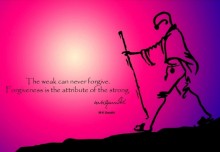Drama versus Loving Relating
What relationship doesn’t have its moments of drama? A friend of mine used to say to me when I’d complain about one of my past, more dysfunctional relationships, “Oh Cyntha, enough of the drama!” The problem was her shaming me only created more drama and I didn’t know what the alternative would be.
David Richo says drama is when we are in victim mode or in rescuer/caretaker mode, indicating that an original wounding has not been grieved. Victim drama includes feeling betrayed, abandoned, rejected, humiliated, disappointed, needy, ignored and lonely and the response often is rage, sulking, manipulation and emotional blackmail as a way to deflect from the real pain at heart. When we pity, save, rescue, caretake and indulge unacceptable behavior, we are seeing a reflection of our own pain in our partner and distract ourselves with saving them, when it really is our own raw, vulnerable pain we are in a diversionary dialogue with.
Drama becomes the flashing red light of deep pain of the inner child that needs to be fully grieved and released. Richo says, “Our problem is not that as children our needs were unmet, but that as adults they are still unmourned.” Feeling real pain is being vulnerable. Drama is excitement, chaos and a distraction from the raw feelings, only delaying real intimacy with first oneself, and then the other.
Let’s take Kate. Whenever Kate’s boyfriend, Jonathan, would not answer her phone calls straightaway or call back when he said he would, even though he had a very demanding job as a cardiologist, she would sulk for a few days and ignore Jonathan. When he would finally turn up on her doorstep despite her refusing his phone calls afterwards, she would start yelling and shame him for not answering when she rang or calling back as promised. Kate’s father left when she was four years old. She and her sister had intermittent weekend visits with him, where often he’d arrive late or not at all. Because he was a formidable authoritarian figure to her, she never felt safe to express her anger or disappointment to him. She was grateful for the crumbs that he was able to offer her and started to assume that maybe there was something about her that wasn’t lovable enough to deserve his time and attention.
If we are needy it is because a valid need of ours was not met. It’s as simple as that. But it also is where we are still holding out hoping and waiting for it to be met by someone else. Grieving that unmet need is the healthy response to an unmet need. It’s the way to finally get to the acceptance and forgiveness of it not being met and then learn to give that necessary love and nurturance to ourselves as an adult, rather than hold our partner hostage and demand he or she gives it to us.
Jonathan, unlike three of Kate’s former boyfriends, did not shame her for her behavior or fall into rescuing her. He alerted her that something else was going on here, when he knew in his heart his intentions were good, that he really loved Kate and that he wanted to be with her. He set limits with Kate and encouraged her to seek help and really address this issue.
David Richo would say that Kate’s neediness revealed to her how much it was time to grieve her “irrevocably barren past” and find her own inner sources of nurturance – i.e. become her own inner parent. She would need to name and validate her basic needs that were unmet, then grieve and accept what her parents were not able to give, and finally commit to do whatever it would take to give that to herself.
She did. She found a counselor and began expressing the range of feelings to her imagined father in the sessions. She expressed her anger through bashing exercises. She wrote letters she did not send and spoke to an imagined him of her great disappointment and hurt for his leaving the family and being undependable in his visits. She then did the work to understand her father’s pain and what was going on within him that made it difficult for him to be fully present to his two daughters and have contact with his ex-wife.
The inner child work is so important in the grieving process. As little children, we are incredibly vulnerable. Our entire life depends on our safety and basic needs being met: we depend on the food given to us, on a shelter where we feel safe and protected, and on the primal need for touch, connection and love. All of these needs are unlikely to have been fully met and certain needs were not met at all. This is where the problem begins. As children, we can’t go anywhere except into ourselves. We shut down and develop coping mechanisms to deal with this loss.
A child needs his or her parents. So many adults feel ashamed of that need. They go inward or act out because they are not able to admit that they have that need. So much of grieving work is around this issue: “I had needs and I now commit to grieving them and to do whatever it takes to take responsibility and relate to you as an adult.”
Example: “I can’t believe that you left me all alone at the concert, just to buy snacks and drinks …” Versus: “I felt very alone… I didn’t know how long it would take you to come back… it was very scary for me. I felt insecure. I was angry that you left me that long. I need to take some time to process this.”
Drama hides other feelings. True anger coexists with other feelings like vulnerability, sorrow, sadness and sense of loss.
When we relate vulnerably and honestly to the old needs that pop up in our relationship, it invites greater intimacy and closeness. We move from emotionally blackmailing our partner to seeing them as our ally in the mirror of what we need to give ourselves. We become free from the grip of a painful past and move from reckless projections to adult, honest, responsible relating. Mature, loving intimacy becomes the welcomed, celebrated new way of life.
For more information on related workshops go to www.cynthagonzalez.com





